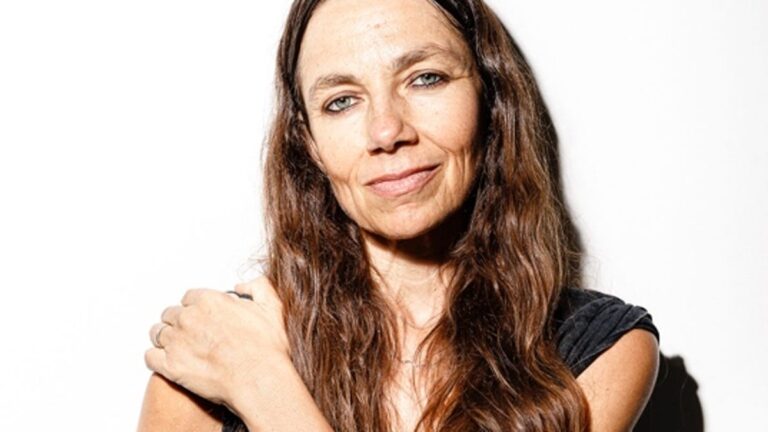Billionaires Fund New University to Counter ‘Woke’ Ideologies
Billionaires Launch University to Combat ‘Woke’ Ideologies
The world of higher education has always been a hotbed for ideological debates. Recently, it seems like an escalating arms race is unfolding, marked by an increasing divide between traditional academic values and newer, more progressive ideologies. Billionaires are now stepping in, and they’re not just making donations; they’re creating new institutions to push back against what they perceive as ‘woke’ ideologies. Let’s dive deep into this fascinating shift and discuss what it could mean for the future of education.
Who Are the Billionaires Behind This Initiative?
When we mention billionaires in the context of education, the names that often come up are the usual suspects: individuals who have amassed wealth and influence in the tech world, finance, and more. These are visionary entrepreneurs like Peter Thiel, Elon Musk, and a few others who not only desire to make an impact but want their voices heard in the academic sphere.
These tycoons have probably grown weary of watching the educational system shift towards ideologies that, in their view, suppress free speech and traditional learning values. By investing in a new university, they express a desire for a space where conservative ideals can flourish without censorship.
What’s at Stake in This Educational Shift?
The growing divide in higher education raises some compelling questions. Are we witnessing a systematic erosion of free speech in universities? Is there enough room for diverse viewpoints in academia, or has it become an echo chamber for progressive thought?
The Traditional University Landscape
Traditional universities have long served as bastions of critical thinking and intellectual diversity. Yet, many argue that they’ve increasingly become sites where students are encouraged to prioritize political correctness over rigorous debate. Are universities still fostering environments where students can explore ideas freely, or have they embraced a single narrative, leaving those who disagree feeling marginalized?
The Rise of ‘Woke’ Ideologies
The term “woke” has evolved dramatically. Initially associated with social justice movements, it now encompasses broader views on identity politics, environmentalism, and a critique of capitalism. Critics argue that ‘woke’ ideologies stifle dissenting opinions and promote a culture of fear among students who might feel pressured to conform to prevailing sentiments.
The New University’s Vision and Mission
So, what exactly is the vision behind this new university? Let’s explore its potential aim and objectives.
Encouraging Free Thought
The primary mission of this new institution is to promote free thought and open discourse. By establishing an academic space where all viewpoints—even those that might be considered unpopular—are welcomed, they aim to challenge the status quo.
Fostering Diversity of Thought
Diversity isn’t just about race or gender; it also encompasses a range of perspectives. The institution hopes to cultivate a culture where students engage with ideas that may contradict their beliefs, encouraging them to think critically and develop their arguments.
Building a Network of Innovators
More than just teaching, the new university aims to connect like-minded individuals who can collaborate on projects, initiatives, and research that might be stifled in traditional settings. In essence, they’re building a think tank with academic credentials.
The Controversial Reaction
As expected, the announcement of this new university has not gone without criticism. Reactions range from supportive to outrage among various groups.
Supporters Celebrate the Move
Supporters argue that there’s a dire need for institutions that challenge conformist ideologies. They believe this initiative is a breath of fresh air in an academic landscape that has felt increasingly suffocating for those who hold contrarian views.
Critics Raise Alarm Bells
However, critics assert that this could lead to further polarization. They warn that creating echo chambers—whether progressive or conservative—could do more harm than good, further fragmenting intellectual discourse and understanding. Are we setting the stage for colleges that merely reinforce existing biases rather than encourage growth and understanding?
What This Means for Students
For current and future students, the emergence of this new university raises crucial questions about their educational environment.
The Power of Choice
With more options available, students can now choose institutions that align more closely with their beliefs and values. Just like picking a favorite playlist, selecting a university can become a personal reflection of one’s ideology.
Finding Common Ground
There’s also the potential for students from different backgrounds to discover common ground. Imagine a campus where conservative and progressive thinkers engage not in bickering, but in productive dialogue, much like a healthy debate in a friendly neighborhood.
Conclusion: The Future of Education
As billionaires take bold steps to establish educational institutions that challenge prevailing ideologies, the landscape of higher education is set to change dramatically. Whether admired or criticized, these moves reflect a growing realization that education is not just about imparting knowledge, but also about facilitating diverse dialogues and promoting critical thinking.
In this heated climate of ideological warfare, the hope is that future generations will be armed with the skills to engage in meaningful conversations, appreciating differing perspectives rather than retreating into silos. Whether this new university will succeed in its mission remains to be seen, but one thing is clear: the conversation on education and ideology is just getting started.
FAQs
1. What is the primary mission of the new university?
The primary mission is to promote free thought and open discourse, allowing diverse viewpoints to flourish without censorship.
2. Who are the main financial backers of this university?
While specific names may vary, known figures like Peter Thiel and other tech entrepreneurs have shown interest in backing such initiatives.
3. How do supporters and critics view this initiative?
Supporters see it as a necessary option for those feeling marginalized in traditional institutions, while critics worry it may deepen ideological divisions.
4. What impact could this university have on students?
It could provide students with a choice to align their education with their beliefs and offer a platform for engaging with opposing perspectives.
5. Is this trend of founding ideologically driven universities likely to increase?
Given the current polarization in society, it’s likely that more such institutions will emerge as people seek educational spaces that resonate with their values.







